Keynote speakers
Keynote Speakers for IEMTRONICS 2025
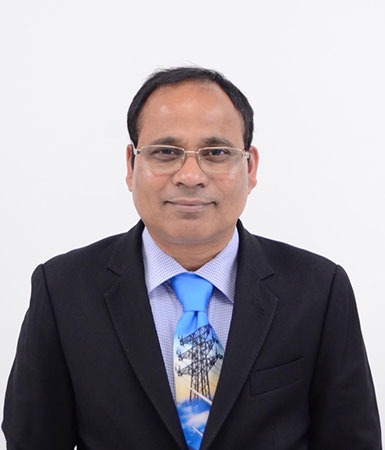
Dr. Bikash Pal
Professor, Imperial College London, UK
Topic: Grid Integration of Solar Energy – Challenges and Opportunities
Bio: Bikash Pal, FIEEE, FREng , is Professor of Power Systems at Imperial College London. He is research active in power system stability, control and computation. His research is sponsored by EPSRC, National Grid, GE, ABB, SIEMENS, UK Power Networks. He led a six-university UK-China research consortium (2020-2023) in Sustainable Energy Networks. In the past he led an eight-university UK-India research consortium (2013-2017) on Smart Grid and Storage and a six-university UK-China research consortium (2014-2017) in Smart Grid and Control . SIEMENS R&D collaborated with him to develop fast power flow and volt-var control tools in Spectrum Power, an advanced module for distribution management system solution from SIEMENS. This is now commissioned in distribution control centres in Columbia, Bosnia Norway and Azerbaijan serving 15 million customers in these countries. GE commissioned sequel of projects with him to analyse and solve wind farm HVDC grid interaction problems (2013-2019). His research group has received 2016 President Award for Outstanding Research. He served as consultant to United Nations, GE, ALSTOM, National Grid, UK Power Networks . He has graduated 30 PhDs and published about 160 technical papers in IEEE Transactions and IET journals. He has co-authored four books and two award winning IEEE Task Force/Working Group reports.
As Vice President of Publication, Power and Energy Society (PES), of IEEE (2019-2023) he set and led the delivery of the plan to sustain the growth in quality, impact and annual revenue ( about $10M) and also offers leadership as Governing Board member for the growth of the society. As IEEE Periodical committee member he was part of team that approves new periodicals and reviews the performance of the current periodicals. He chaired an IEEE Working Group in state estimation for power distribution applications. Since 2008 , as an IEEE Distinguished Lecturer he has been offering special lectures and tutorials in power system control and computation . He was Editor-in-Chief of IEEE Transactions on Sustainable Energy. He is Series Editor of Elsevier series on Sustainable Energies and Fellow of IEEE for his contribution to power system stability and control. He is Fellow of The Royal Academy of Engineering, UK for the industrial impact of his research in power network control. He was Otto Monsted International Professor at Denmark Technical University (DTU) in 2019, and Mercator Professor at University of Duisburg-Essen in 2011 invited respectively by the Otto Monsted Foundation and German Research Foundation (DFG). He was honored as Distinguished Visiting Professor at North China Electric Power University and Tsinghua University, China.
Beyond his profession , Professor Pal has founded and been running KAJALBABU MEMORIAL TRUST an education charity in India to mentor children from economically disadvantaged background.
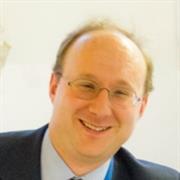
Dr. Paul Mitcheson
Professor, Imperial College London, UK
Topic: Wireless power and its commercialisation
Bio: Paul Mitcheson received the MEng degree in Electrical and Electronic Engineering in 2001 and the PhD degree in 2005 both from Imperial College London. He is currently Professor of Electrical Energy Conversion in the Control and Power Research Group in the Electrical Engineering Department at Imperial and has research interests in energy harvesting systems, wireless power transfer and power electronics. He is a fellow of the higher education academy and senior member of the IEEE. He was general co-chair of PowerMEMS 2013, held in the Royal Society, London and sits on the Executive Committee of the UK Power Electronics Centre.
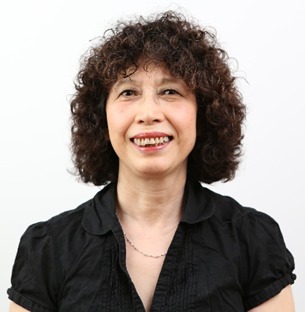
Dr. Xiaohong Wang Gao
Professor, Middlesex University, UK
Topic: The state of the art AI and its application to medical image analysis
Bio: Prof Gao is currently a full professor in Computer Vision and Imaging Science at Middlesex University, London, UK. She received her PhD in computer colour vision in Loughborough University, UK in 1994. Her PhD work has led to the international standardisation on colour appearance models of CIECAM97’s, CIECAM02 and recently CIECAM16. Before joining Middlesex University as an academic in 1999, she had worked as a post-doc researcher at the St. Mary’s Hospital at Imperial College, London and the Wolfson Brain Imaging Centre at the University of Cambridge. She has over 20 years of experience working on the application of AI technology to medical fields and has attracted around £2 million external funds in these fields in the last 5 years.

Mr. Sanjeev Kothari
Data & AI Consulting Leader| AI Governance Professional| Memberof DAMA,UK| DCAM| Speaker| Mentor| Thought Leader| CIO 200awards| Top 25 Digital Transformation Leader| Data Story of theYear runner up by DAMA UK
Topic: Enterprise Data Quality Management Framework- How to set the right data foundation for Responsible AI
Bio: Sanjeev Kothari is a distinguished Data & AI Consulting Leader with a profound expertise in AI Governance. His career is marked by his commitment to ethical and effective data and AI practices. As a member of DAMA, UK, and a DCAM certified professional, Sanjeev demonstrates a deep understanding of data management principles and their practical application. He is a prominent voice in the industry, frequently sharing his insights as a speaker and mentor, guiding organizations towards responsible AI adoption. Sanjeev is widely recognized for his thought leadership, having earned numerous accolades, including CIO 200 awards, which highlight his contributions to technology leadership. He has also been named among the Top 25 Digital Transformation Leaders, underscoring his ability to drive impactful change in the digital landscape. Sanjeev Kothari is a driving force in shaping the future of data and AI, promoting best practices and fostering innovation. His industry recognition & awards includes Runner up award for Data Story of the Year 2024 from DAMA, UKCIO 200 UK Master Award 2024 and Top 25 Digital Transformation Leader Award 2024.
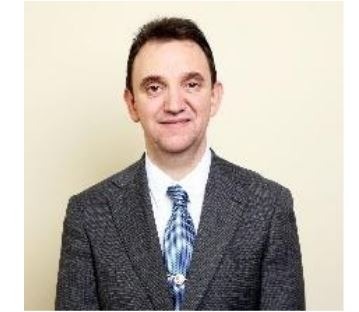
Dr. Luis Martínez López
Professor of Computer Science, University of Jaén
Bio: Dr. Luis Martínez López, born in 1970, received both his M.Sc. and Ph.D. degrees in Computer Science from the University of Granada, Spain, in 1993 and 1999, respectively. He is currently a Full Professor in the Department of Computer Science at the University of Jaén and serves as the Head of the ICT Research Centre at the same institution.
Dr. Martínez’s research interests include fuzzy decision making, linguistic preference modeling, fuzzy systems, decision support systems, personalized marketing, computing with words, and recommender systems. He has been the principal investigator in multiple R&D projects and has co-edited several journal special issues on topics such as fuzzy preference modeling, soft computing, linguistic decision making, and fuzzy set theory.
His publication record includes over 120 papers in journals indexed by the Science Citation Index (SCI), 33 book chapters, and more than 150 contributions to international conferences related to his areas of expertise. Dr. Martínez has also co-authored the book “Multi-Criteria Decision-Making Sorting Methods,” published by Elsevier in April 2023.
In terms of editorial roles, Dr. Martínez is the Co-Editor-in-Chief of the International Journal of Computational Intelligence Systems and serves as an Associate Editor for several journals, including IEEE Transactions on Fuzzy Systems, Information Fusion, the International Journal of Fuzzy Systems, Journal of Intelligent & Fuzzy Systems, Applied Artificial Intelligence, and Journal of Fuzzy Mathematics. He is also a member of the European Society for Fuzzy Logic and Technology and IEEE.
Dr. Martínez has received the IEEE Transactions on Fuzzy Systems Outstanding Paper Award twice, in 2008 and 2012 (bestowed in 2011 and 2015, respectively). He has held visiting professor positions at the University of Technology Sydney, University of Portsmouth (under the Isambard Kingdom Brunel Fellowship Scheme), and Wuhan University of Technology (as a Chutian Scholar). Additionally, he has been recognized as a Highly Cited Researcher in Computer Science by Web of Science from 2017 to 2022.
Professor Aldo Faisal
Imperial College London, London, United Kingdom
Bio: Professor Aldo Faisal is the Professor of AI & Neuroscience at the Dept. of Computing and the Dept. of Bioengineering at Imperial College London. He was awarded a prestigious UKRI Turing AI Fellowship (£2 Mio including industry partners). Aldo is the Founding Director of the £20Mio. UKRI Centre for Doctoral Training in AI for Healthcare that aims to transform AI for Healthcare research and pioneer training 100 PhD and Clinical PhD Fellows. He also holds a Chair in Digital Health at the University of Bayreuth (Germany).
At his two departments, Aldo leads the Brain & Behaviour Lab focussing on AI & Neuroscience and the Behaviour Analytics Lab at the Data Science Institute. He is Associate Investigator at the MRC London Institute of Medical Sciences and is affiliated faculty at the Gatsby Computational Neuroscience Unit (University College London). He was the first elected Speaker of the Cross-Faculty Network in Artificial Intelligence representing AI in College on behalf of over 200 academic members.
Aldo serves as an Associate Editor for Nature Scientific Data and PLOS Computational Biology and has acted as conference chair, program/area chair, chair in key conferences in the field (e.g. Neurotechnix, KDD, NIPS, IEEE BSN). In 2016 he was elected into the Global Futures Council of the World Economic Forum.
Aldo received a number of awards and distinctions, including Scholar of the German National Merit Foundation (Studienstiftung des Deutsche Volkes; Undergraduate & PhD), a PhD Fellow of the Böhringer-Ingelheim Foundation for Basic Biomedical Research, elections as a Junior Research Fellow at the University of Cambridge (Wolfson College), and a number of research prizes and award such as the Toyota Mobility Foundation $50,000 Research Discovery Prize in 2018, and together with the AI Clinician team the Rosetree Interdisciplinary Award (£300,000) in 2022.
Aldo’s lab featured regularly across global media (such as BBC, CNN, TED, TEDx, Wall Street Journal, Guardian, Financial Times , WIRED, Scientific American, New Scientist, etc.), e.g. in 2016 Scientific American voted his research on gaze-based control as 1st of 10 most transformative ideas of year.
Dr Faisal’s labs is operated as a borderless lab across UK and Germany. The UK lab at Imperial is located in the Royal School of Mines building and combine cross-disciplinary computational and experimental approaches to investigate how the brain and behaviour evolved to learn and control goal-directed behaviour. The neuroscientific findings enable the targeted development of novel technology for clinical and research applications (Neurotechnology) for a variety of neurological/motor disorders and amputees. Key techniques include on the computational side are data-driven methods from machine learning & stochastic modelling techniques and experimentally we use sensorimotor experiments, eye-tracking & kinematics (full-body, hands), non-invasive brain imaging (EEG, fNIRS), robotics (hand & arm robots).
Dr Faisal’s Behaviour Analytics lab located in the Data Science Institute objective is the data-driven analysis of human behaviour and pioneering development of methods & algorithms to move in a principled manner from Big Data to Big Knowledge. Keys goals are, understand and predict human behaviour from ubiquitous sensors & digital data, predict and evaluate human performance, Infer internal or cognitive state (stress, risk) of individuals from behavioural dynamics, develop behavioural biomarkers of physiological and psychological well-being and bottom-up analysis of group and social dynamics from the decisions of individuals.
Biographical sketch: Aldo read Computer Science and Physics in Germany, where he wrote his Diplomarbeit (M.Sc. thesis) in non-linear dynamical systems and neural networks (with Helge Ritter). He moved on to study Biology at Cambridge University (Emmanuel College) and wrote his M.Phil. thesis on the electrophysiological and behavioural study of a complex motor behaviour in freely moving insects with Tom Matheson in the group of Malcolm Burrow FRS. For his Ph.D. he joined Simon Laughlin FRS group at the Zoology Department in Cambridge investigating the biophysical sources of neuronal variability. He was elected a Junior Research Fellow at Cambridge University (Wolfson College) and joined the Computational & Biological Learning Group (Engineering Department) to work with Daniel Wolpert FRS on human sensorimotor control. Between and after his studies he gained insights into strategic mangement consulting with McKinsey & Co. and as a “quant” with the investment bank Credit Suisse. In winter 2009 Aldo setup the Brain & Behaviour Lab at Imperial College to pursue a research program that aims at understanding the brain with principles from engineering which often immediately translates into direct technological applications for patients and society.
Professor Yang Gao
FIET FRAeS,King’s College London, United Kingdom
Bio: Professor Yang Gao is a Professor of Robotics and heads the Centre for Robotics Research within the Department of Engineering at King’s College London. She brings over 20 years of research experience in developing space robotics and autonomous systems, in which she has been the Principal Investigator of nationally and internationally teamed projects funded by European Space Agency (ESA), UK Space Agency, UK Research Innovation, Royal Academy of Engineering, European Commission, as well as industries. Yang is also actively involved in design and development of real-world space missions such as ESA ExoMars, Proba3 and VMMO (lunar ice mapper), UK’s CLEAR, MoonLITE and Moonraker, and CNSA Chang’E3. Yang’s work has been applied to several non-space sectors including nuclear, utility and agriculture through technology transfer and spin offs.
Yang is an elected Fellow of Institute of Engineering and Technology (IET) and Royal Aeronautical Society (RAeS). She was named by the Times Higher Education in 2008 one of ten UK’s young leading academics making a significant contribution to their disciplines, and she also received the Mulan Award in 2019 for her contributions to science, technology and engineering. Within her research field, Yang serves the international R&D community through various leadership roles, such as being the Editor-in-Chief of Wiley’s Journal of Field Robotics, the Co-Chair of IEEE Robotics & Automation Society’s Technical Committee on Space Robotics, and the Mentor of the United Nations’ Office for Outer Space Affairs (UNOOSA) Space4Women program, etc.
Prior to joining King’s in August 2023, Yang spent nearly 19 years at the University of Surrey where she founded and led the multi-award winning STAR LAB (Space Technology for Autonomous & Robotic systems Laboratory). Before that, she was an awardee of the prestigious Singapore Millennium Foundation Postdoctoral Fellowship and worked on intelligent and autonomous vehicles. She gained the B.Eng. (First Class Honours) degree and Ph.D. degree from the Nanyang Technological University, Singapore in 2000 and 2003 respectively.
Mr. Shantanu Goswami
VP BTP Strategy & Industry Usecases EMEA, United Kingdom
Bio: Shantanu Goswami is VP BTP Strategy & Industry Usecases EMEA, United Kingdom and was the Director at the Platform & Technology Centre of Excellence at SAP. He brings around 20 years of consulting experience, having worked with customers from Public Sector, Utilities, Travel & Transport and Retail domains.
Shantanu is responsible for creating and enabling the selling motions which are a collection of innovative processes that have been repeatedly used by our customers. His focus for these usecases are bigdata enablement and the usage of the SAP Hana in-memory platform in a number of innovative ways around a diverse set of topics.
Shantanu is a qualified engineer by training and completed his Masters in Business Administration ( MBA) from the Manchester Business School (UK). He is also a certified Messaging coach from the Corporate Visions Inc (USA). Shantanu is a public speaker, innovation evangelist & startup mentor.
Dr. Gil Zussman
Professor, Columbia University, New York
Bio: Gil Zussman received the B.Sc. degree in Industrial Engineering and Management and the B.A. degree in Economics (both summa cum laude) from the Technion – Israel Institute of Technology in 1995. He received the M.Sc. degree (summa cum laude) in Operations Research from Tel-Aviv University in 1999 and the Ph.D. degree in Electrical Engineering from the Technion – Israel Institute of Technology in 2004. Between 1995 and 1998, he served as an engineer in the Israel Defense Forces. Between 2004 and 2007 he was a Postdoctoral Associate in LIDS and CNRG at MIT.
In 2008 he joined the faculty of the Department of Electrical Engineering at Columbia University where he is now a Professor. His research interests are in the area of networking, and in particular in the areas of wireless, mobile, and resilient networks. He has been an associate editor of IEEE Transactions on Control of Network Systems, IEEE Transactions on Wireless Communications and Ad Hoc Networks, the Technical Program Committee (TPC) co-chair of ACM MobiHoc’15, IFIP Performance 2011, and a member of a number of TPCs (including the INFOCOM, MobiCom, SIGMETRICS, and MobiHoc committees).
Gil received the Knesset (Israeli Parliament) award for distinguished students, the Marie Curie Outgoing International Fellowship, the Fulbright Fellowship, the DTRA Young Investigator Award, and the NSF CAREER Award. He was the PI of a team that won the 1st place in the 2009 Vodafone Foundation Wireless Innovation Project competition. He is a co-recipient of seven best paper awards, including the ACM SIGMETRICS / IFIP Performance’06 Best Paper Award, the 2011 IEEE Communications Society Award for Advances in Communication, and the ACM CoNext’16 Best Paper Award.
Dr. Kin K. Leung
Professor, Imperial College, London, United Kingdom
Bio: Dr. Leung had completed his Ph.D. in computer science, Univ. of California, Los Angeles in 1985; M.S. in computer science, Univ. of California, Los Angeles in 1982 and B.S. in electronics, The Chinese Univ. of Hong Kong, Hong Kong in 1980. His major Honors and Awards are:
- IEEE Communications Society Leonard G. Abraham Prize, 2021
- S.–UK Science and Technology Stocktake Award for the DAIS ITA Team, 2021
- IET Fellow, 2021
- Member of Academia Europaea, 2012
- IEEE Fellow Evaluation Committee for Communications Society: Member 2009-2011, Chairman 2012-2015
- Royal Society Wolfson Research Merit Award, 2004-2009
- IEEE Fellow for contributions to “Performance analysis, protocol design and control algorithms for communications networks,” 2001
- Lanchester Prize Honorable Mention Award, 1997
- Bell Labs Distinguished Member of Technical Staff Award, 1994
He is Journal Editor of the following:
- ACM Computing Survey (2009-now)
- Journal of Sensor Networks (2005-now)
- IEEE Trans. on Mobile Computing, Steering Committee Chairman (2020-2022) and Member (2014-2016)
- IEEE Trans. on Communications (1997-2011)
- IEEE Trans. on Wireless Communications (2001-2009)
- IEEE Journal on Selected Areas in Communications: Wireless Series (1999-2001)
- Guest editor: IEEE Wireless Communications, 2007
- Guest editor: Journal of Wireless Communications and Mobile Computing, 2005
- Guest editor: Journal on Special Topics in Mobile Networking and Application (MONET), 2003
- Guest editor: IEEE Journal on Selected Areas in Communications, 1997
His current Research Interests includes:
- Machine learning, distributed optimization, stochastic modeling and queueing theory.
- Wireless communications: resource allocation, power control, spread spectrum, MIMO/beamforming antennas, cross-layer designs, link adaptation, MAC, wireless TCP/IP, QoS, network protocols, and sensor, vehicular, ad-hoc and mesh networks.
- Wireless technologies: GSM, EDGE, 3G, 4G and 5G cellular networks, and IEEE 802.11, 802.16 and 802.15 networks.
- Communication networks: TCP/IP, mobility management, real-time applications, network control protocols, traffic modeling.
Dr. Dayan Ban
Professor, University of Waterloo, Canada
Bio: Dayan Ban is a full Professor in Electrical and Computer Engineering and is a researcher at the Waterloo Institute for Nanotechnology.
His expertise lies in the conversion of near infra-red light directly to visible light, design and fabrication of high-performance quantum devices and the development of ultra-sensitive surface plasmon sensors.
Professor Ban successfully improved the efficiency of hybrid organic/inorganic devices by more than one order of magnitude and applied time-domain terahertz spectroscopy to study the device physics of terahertz quantum cascade lasers. Professor Ban’s research has also accomplished the fabrication of prototype hybrid organic/inorganic devices by direct tandem integration and the study of the effects of interfacial states on device performance. These devices are responsible for the conversion of near-infrared light directly to visible light (green) at room temperature.
Professor Ban pioneered the development of new methods in scanning probe microscopy to observe, with nanometric spatial resolution, two-dimensional profiles of conductivity and potential inside actively-driven lasers. He also resolved the nanoscopic reason for anomalously high series resistance encountered in ridge waveguide lasers. In addition, Professor Ban reported the first direct experimental observation of electron overbarrier leakage in operating buried heterostructure multi-quantum-well –lasers. His work has provided the first experimental visualization of the inner workings of operating semiconductor lasers, and has also provided a platform for enabling tools for quantum semiconductor device and nanotechnology research.
Research Interests
- Semiconductor quantum
- devices
- Photonics
- THz technology
- Nanotechnology
- Atomic force microscope
- Fiber-optical communication system
- Silicon Devices
- Terahertz Quantum
- Cascade Lasers
- Biophotonics
- Scanning Probe
- Microscopy
- Connectivity and Internet of Things
- Nanofabrication
- IoT Devices
- Application domains
Education
- 2003, Doctorate, Ph.D., University of Toronto
- 1995, Master’s, MS, University of Science and Technology of China
- 1993, Bachelor’s, BA, University of Science and Technology of China
Dr. Torsten Hoefler
Professor, ETH Zürich,Switzerland
Bio: Torsten Hoefler directs the Scalable Parallel Computing Laboratory (SPCL) at D-INFK ETH Zurich. He received his PhD degree in 2007 at Indiana University and started his first professor appointment in 2011 at the University of Illinois at Urbana-Champaign.
Torsten has served as the lead for performance modeling and analysis in the US NSF Blue Waters project at NCSA/UIUC. Since 2013, he is professor of computer science at ETH Zurich and has held visiting positions at Argonne National Laboratories, Sandia National Laboratories, and Microsoft Research Redmond (Station Q).
Dr. Hoefler’s research aims at understanding the performance of parallel computing systems ranging from parallel computer architecture through parallel programming to parallel algorithms. He is also active in the application areas of Weather and Climate simulations as well as Machine Learning with a focus on Distributed Deep Learning. In those areas, he has coordinated tens of funded projects and an ERC Starting Grant on Data-Centric Parallel Programming.
He has been chair of the Hot Interconnects conference and technical program chair of the Supercomputing and ACM PASC conferences. He is associate editor of the IEEE Transactions of Parallel and Distributed Computing (TPDS) and the Parallel Computing Journal (PARCO) and a key member of the Message Passing Interface (MPI) Forum.
He has published more than 200 papers in peer-reviewed international conferences and journals and co-authored the latest versions of the MPI specification. He has received best paper awards at the ACM/IEEE Supercomputing Conference in 2010, 2013, and 2014 (SC10, SC13, SC14), EuroMPI 2013, IPDPS’15, ACM HPDC’15 and HPDC’16, ACM OOPSLA’16, and other conferences. Torsten received ETH Zurich’s Latsis Prize in 2015, the SIAM SIAG/Supercomputing Junior Scientist Prize in 2012, the IEEE TCSC Young Achievers in Scalable Computing Award in 2013, the Young Alumni Award 2014 from Indiana University, and the best student award 2005 of the Chemnitz University of Technology. Torsten was elected into the first steering committee of ACM’s SIGHPC in 2013 and he was re-elected in 2016. His Erdős number is two (via Amnon Barak) and he is an academic descendant of Hermann von Helmholtz.
Dr. M. Jamal Deen
Distinguished University Professor , McMaster University, Canada
Bio: M. Jamal is a Distinguished University Professor and Senior Canada Research Chair in Information Technology at McMaster University in Hamilton, Ontario, Canada. He is also the Director of the Micro- and Nano-Systems Laboratory. His research specialty are in the broad areas of electrical engineering and applied physics. He has done his Ph.D. (Electrical Engineering and Applied Physics) from Case Western Reserve University, Cleveland, OH, U.S.A in 1985; M.S. (Electrical Engineering and Applied Physics), from Case Western Reserve University, Cleveland, OH, U.S.A in 1982 and B.Sc. (Physics/Mathematics), from University of Guyana, Turkeyen, Guyana in 1978. His expertise includes Micro-/Nano-/Opto-Electronics, Nanotechnology and Data Analytics for Health and Environmental Applications, Bioimagers, Biosensor; his areas of specializations are Imaging, Sensing and Detection, Integrated Systems, Biomedical, Microelectronics, Communications, Biomedical. His achievements includes:- F.R.S.C., F.C.A.E., M.E.A.S.A., F.N.A.S.I., F.I.N.A.E., F.I.E.E.E., F.A.P.S., F.E.I.C., F.E.C.S., F.A.A.A.S.;
- Distinguished University Professor; Professor and Senior Canada Research Chair in Information Technology ;
- 2017 Distinguished Visiting Fellowship Award from Royal Academy of Engineering, UK;
- 2017 PIFI Distinguished Scientist Award from Chinses Academy of Sciences;
- 2017 Overseas Academic Masters Scholar Award;
- 2014 IEEE Canada Ham Outstanding Engineering Educator Award;
- 2013 IEEE Canada AGL McNaughton Gold Medal;
- 2013 UWI Vice-Chancellor’s Award;
- 2013 Faculty of Engineering Research Achievement Award from McMaster University;
- 2011 IEEE Canada R.A. Fessenden Silver Medal Award;
- 2011 Electronics and Photonics Divison (EPD) Award from the Electrochemical Society ;
- 2009 Technology Achievement Award from the Indo-Canada Chamber of Commerce;
- 2008 Eadie Medal from The Royal Society of Canada;
- 2008 Guyana Award from the Academic Excellence Guyana Awards Council – Canada;
- 2006 Humboldt Research Award from the Alexander von Humboldt Foundation;
- 2006 IBM Faculty Award from IBM Corporation, USA;
- 2002 Distinguished Lecturer from IEEE Electron Device Society;
- 2002 Thomas D. Callinan Award from the Electrochemical Society.
- Doctor – Honoris Causa El Instituto Nacional de Astrofísica, Óptica y Electrónica, Puebla, Mexico, 11 Nov 16.
- Doctor – Honoris Causa Universitat Rovira I Virgili, Tarragona, Spain, 7 March 2014.
- Doctor – Honoris Causa Universidad de Granada, Granada, Spain, 25 May 2012.
- Doctor of Engineering – Honoris Causa University of Waterloo, Waterloo, Ontario, Canada, 18 June 2011.
Many more speakers to be disclosed soon!
| Full Paper Submission: | 10th March, 2025 |
| Acceptance Notification: | 12th March, 2025 |
| Early Bird Registration: | 20th March, 2025 |
| Presentation Submission: | 20th March, 2025 |
| Conference ON: | 3rd – 5th April, 2025 |

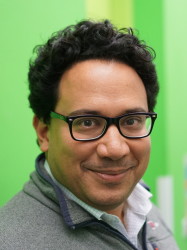
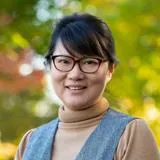
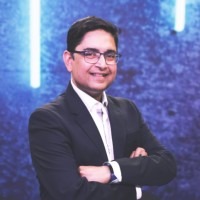
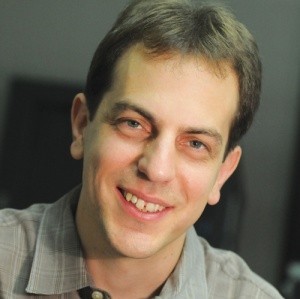
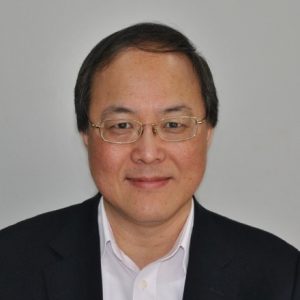
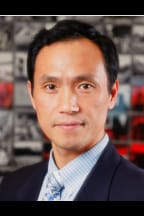
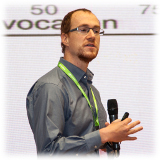
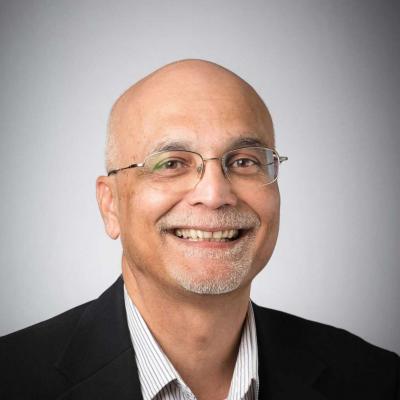
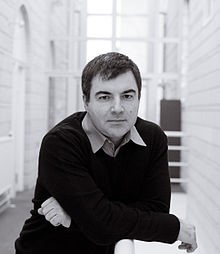
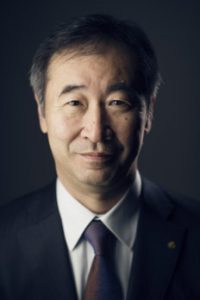 Kajita Takaaki, (born 1959, Higashimatsuyama, Japan), Japanese physicist who was awarded the 2015
Kajita Takaaki, (born 1959, Higashimatsuyama, Japan), Japanese physicist who was awarded the 2015